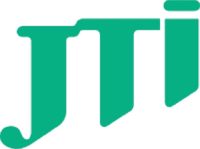A recent survey by the tobacco supplier JTI shows many retailers are unsure of various aspects of the upcoming Track and Trace legislation monitoring the movement of tobacco products in the UK retail supply chain, which comes into force on 20th May.
 The poll of over 1,400 stores carried out via JTI’s customer website JTI Advance, highlights that further trade education is needed on the specifics of the new legislation.
The poll of over 1,400 stores carried out via JTI’s customer website JTI Advance, highlights that further trade education is needed on the specifics of the new legislation.
Among the headline findings, 70% of retailers surveyed were unaware they needed to apply for two separate identifier codes to store and sell tobacco products legally, an Economic Operator ID code and a facility code for their business, while 60% admitted they were unsure when the legislation comes into effect.
“We surveyed the independent retailers,” says Mark Yexley, Head of Communications at JTI, “but the picture is much the same among the wholesalers we speak to in the course of business. There’s a lot of uncertainty out there. As partners of choice to the UK’s wholesalers and retailers, JTI has supported the trade for many years to help guide them through the changing EU tobacco legislation, and this is another step on our journey together.”
In a separate development HMRC has now appointed De La Rue, the security and anti-counterfeiting solution provider, to implement the Track & Trace system for tobacco products sold in the UK. As part of the contract De La Rue is also managing the service for HMRC with the tobacco manufacturers, importers and relevant economic operators serving the UK tobacco products sector, including the retailers and wholesalers.
The £3.5 million contract will see De La Rue implement a digital solution to track and trace the estimated 1.7 billion cigarette and hand rolling tobacco packs sold in the UK each year, through a unique identifier.
Ensuring the traceability of all tobacco products sold here is now a legal requirement under the EU Tobacco Products Directive, Article 15, which has the specific aim of preventing the illicit trade of tobacco products throughout the EU and protecting citizens from counterfeit products which could be damaging to their health.
De La Rue has been helping governments and tax authorities around the world to fight illicit trade and protect tax revenue for decades. De La Rue launched its track and trace digital solution DLR Certify in 2015. In 2018, it won a five-year contract to implement a tobacco products track and trace solution for the Federal Tax Authority in the UAE.
 To support UK retailers and wholesalers through the transition to going live with Track & Trace, JTI has launched a dedicated microsite (www.jtiadvance.co.uk/trackandtrace), featuring practical information and advice to help them prepare. JTI is also running trade press advertising and digital advertising to get the message across to the trade. Their dedicated sales representatives are also on hand to communicate the changes and answer retailers and wholesalers’ questions may have in the lead up to 20th May and beyond.
To support UK retailers and wholesalers through the transition to going live with Track & Trace, JTI has launched a dedicated microsite (www.jtiadvance.co.uk/trackandtrace), featuring practical information and advice to help them prepare. JTI is also running trade press advertising and digital advertising to get the message across to the trade. Their dedicated sales representatives are also on hand to communicate the changes and answer retailers and wholesalers’ questions may have in the lead up to 20th May and beyond.
Mark Yexley, JTI’s Head of Communications comments: “Ensuring the Track and Trace system is implemented by 20th May is a significant challenge for the tobacco trade sector as a whole, but we will be on hand to help support our trade partners through the transition, every step of the way.”
Just how big is the illicit tobacco problem and who is behind it? Mark Yexley makes it plain:
“In the UK, up to ninety percent of the price of a pack of cigarettes is tax, making this a very attractive place for serious and organised crime.” A pack of twenty ‘legit’ cigarettes sells for upwards of ten pounds but illicit smokes are available for three or four pounds:
“Fake cigarettes are a huge international criminal business, coming in to the UK through various points of entry. It’s a global problem.” The Track and Trace legislation will allow the authorities to track the route of and source of genuine product throughout the supply chain.
 Encouragingly, says Mark Yexley, as mentioned above nearly half (46%) of retailers JTI surveyed believe the legislation will help combat the illicit tobacco trade, which the government estimates accounts for 15% of cigarette sales and 28% of hand rolling tobacco sales in the UK.
Encouragingly, says Mark Yexley, as mentioned above nearly half (46%) of retailers JTI surveyed believe the legislation will help combat the illicit tobacco trade, which the government estimates accounts for 15% of cigarette sales and 28% of hand rolling tobacco sales in the UK.
Mark Yexley continues: “The success of the Track and Trace legislation will require strict enforcement, and it’s now more important than ever for retailers to report instances of illicit tobacco sold in their area. Retailers found guilty will face penalties from HMRC and potentially lose the right to trade tobacco.”
JTI is committed to supporting lawabiding retailers by fighting the illicit trade. The manufacturer launched its ‘Don’t Be Complicit In Illicit’ campaign in 2018, aimed at encouraging retailers to join the fight against the criminals. It has removed gantries from 32 retailers found selling illegal tobacco, as well as supporting five private prosecutions in 2018, all of which resulted in successful convictions.
Counterfeit tobacco is often very poor quality, with high levels of toxic chemicals, Mark points out, although the packaging can be hard to distinguish from the real thing:
“Because of the higher price of legal tobacco, people buying and selling illicit products understand the difference in quality.”
JTI have been supporting the fight against illicit tobacco with their “Don’t Be Complicit In Illicit” initiative and have run over 30 UK local media campaigns since 2013, highlighting why consumers should not support this illegal trade because of the negative effect on local communities.
JTI has removed 35 gantries from retailers since 2015:
“If someone has been selling illicit products alongside genuine, under the new system the enforcement is now in place to stop them. A major deterrent is that they risk losing their identifier codes.”
The new rules come in on May 20th, after which there’s a year for retailers to sell existing stocks of cigarettes and hand rolling tobacco without the codes. From 2024, the Track & Trace regulations will apply to all other tobacco products, which will need to carry the same security features.
The process starts when manufacturers scan out the products and the last scanning out is when the retailer goes to the cash & carry to get the product. Wholesalers need to apply for an Economic Operator ID code and a facility code for their business. If they have more than one location they need a facility code for each of their premises.
Wholesalers also need to put the right kit in place to scan coded products. Mark says the industry have selected a third-party supplier, SGS, to support wholesalers in this process.
Government websites offering advice are now up and running. The codes are free of charge: retailers have to take them to the wholesalers when they buy stock, but they are free to obtain.
From our conversation, it sounds as though the vast majority of retailers and wholesalers who obey the law will be put through a lot of trouble for the sake of a tiny minority of wrongdoers. So will Track & Trace be effective in tackling the problem? Mark Yexley is confident it will:
“Strict enforcement will be crucial for the legislation to have the desired effect. As things are, local authorities and Trading Standards both need more resources, so with new security features in place, it will make it harder for the criminals and the retailers, who risk losing their EODC code. The key point is, as an industry it’s more important than ever for us to work together.”




Comments are closed.